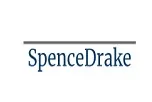As established in multiple decisions, includingCanada (National Revenue) v. Cameco Corporation,2019 FCA 67 (CanLII), Canada Revenue Agency ("CRA") has the authority to compel a taxpayer to "provide" the books and records they wish to audit. But what is the scope of "provide"?
The Federal Court of Canada was tasked with determining this inCanada (National Revenue) v. Montana,2019 FC 900 (CanLII) [Montana]. According to the Federal Court at paragraph 18, the issue triggering a multi-year and multi-hearing dispute leading to the Applicant's motion "appears to be simple at first glance: when ordered ""to provide"" documents to the CRA, must they simply be made available by the taxpayer, or must the taxpayer physically deliver them to the auditors?".
The applicant, CRA, first requested documents from the taxpayer years earlier, in May of 2014. They refused multiple times. At paragraph 40:
Clearly, to say that there has been a history of non-cooperation is an understatement. The Applicant has now been trying to audit the Respondents for over five years, but the Respondents have resisted at every turn. For instance, and most recently, the Respondents rejected the Applicant's seemingly simple solution to send a courier to the Burlington address to pick up the boxes.
The taxpayer invited the auditors to visit the corporate premises where the documents would be made available. However, they rejected CRA's offer to send a courier to pick them up.
Requirement to Provide Documents or Information
Subsection 231.1(1) of Canada's FederalIncome Tax Act, RSC 1985, c 1 (5th Supp) ("ITA") authorizes CRA to "inspect, audit or examine" taxpayer books and records and compel the respective information for purposes related to enforcing the ITA. This includes entering premises and requiring certain individuals to provide "reasonable assistance."
Under subsection 231.2(1), CRA can require, and the taxpayer must provide, information and documents "for any purpose related to the administration or enforcement" of the ITA. If a taxpayer does not abide by requests, section 231 gives CRA multiple powers to obtain the "document or thing", including a search warrant per subsection 231.3(1).
Compliance Order - the Scope of the Definition of "Provide" in Subsection 231.7(1)
Pursuant to subsection 231.7(1) of the ITA, a compliance order will be granted by the court if it is convinced that the taxpayer was required to provide the information and/or documents and failed to do so. A taxpayer can be found in contempt of court if they do not comply with the order. In Montana, compliance, contempt, and sentencing orders were issued. As per the sentencing order if the taxpayer did not provide the requested information and documents within 30 days the court would seek an arrest warrant.
In general, if a compliance order is granted, a taxpayer must "provide any access, assistance, information or document sought..". There is an exception for information or documents considered protected by solicitor-client privilege (paragraph 231.7(1)(b)). The taxpayer sought to vary the compliance order claiming it had already complied with CRA because it provided onsite access to its books and records.
However, the Federal Court agreed with CRA, at paragraphs 27, 31 and 32, that "provide" has a flexible meaning and can encompass various forms. When issuing a compliance order per ITA subsection 231.7(1), CRA is able to require, per the text of the provision, that a taxpayer "provide any access, assistance, information or document sought by the Minister". The inclusion of "assistance, information or document" indicates that Parliament intended more than just access.
At last, the court ruled that CRA has the authority to compel the taxpayer to deliver the books and records to its premises. However, in this case a courier paid for by CRA was sufficient.
The content of this article is intended to provide a general guide to the subject matter. Specialist advice should be sought about your specific circumstances.

